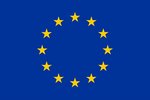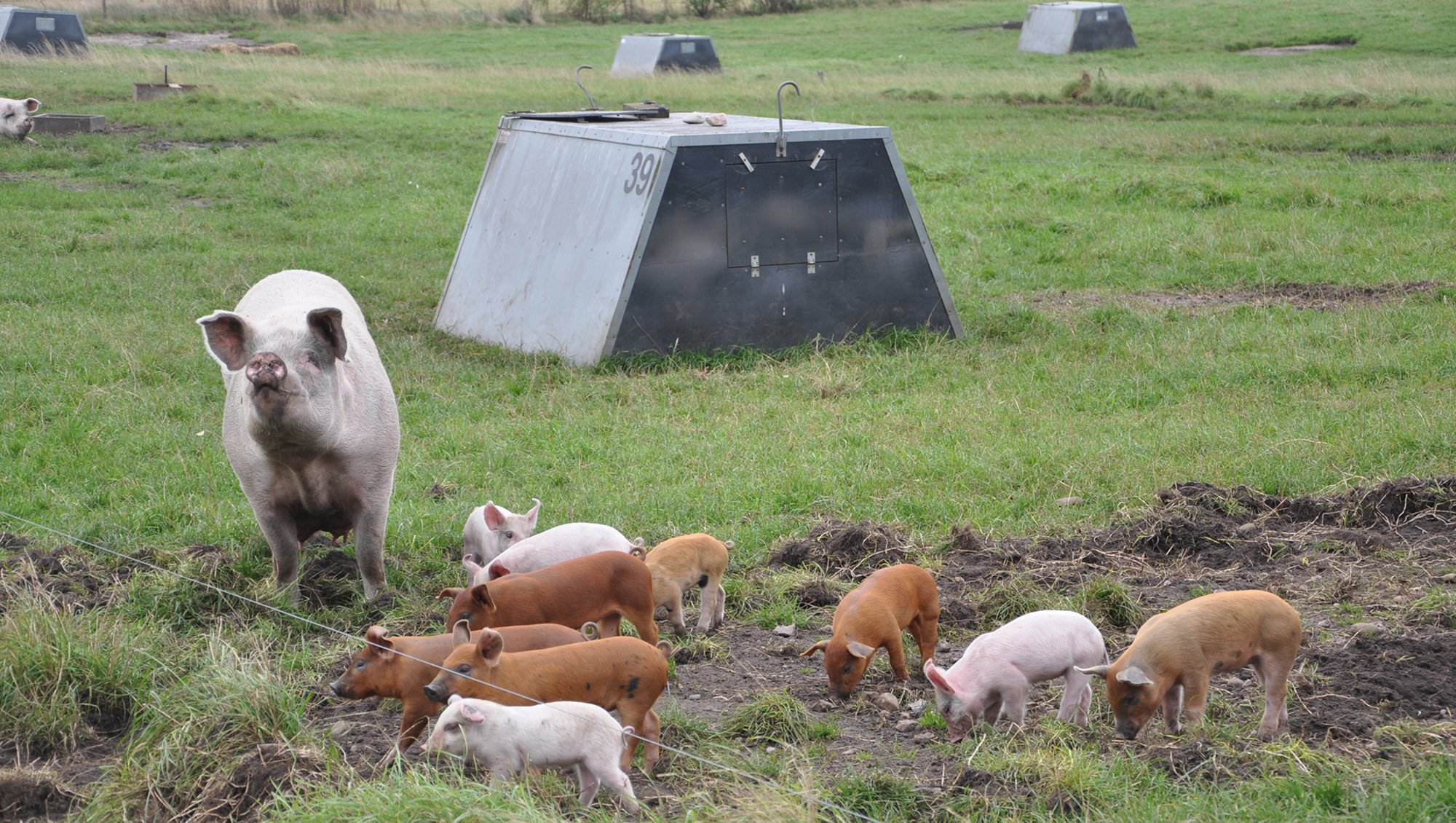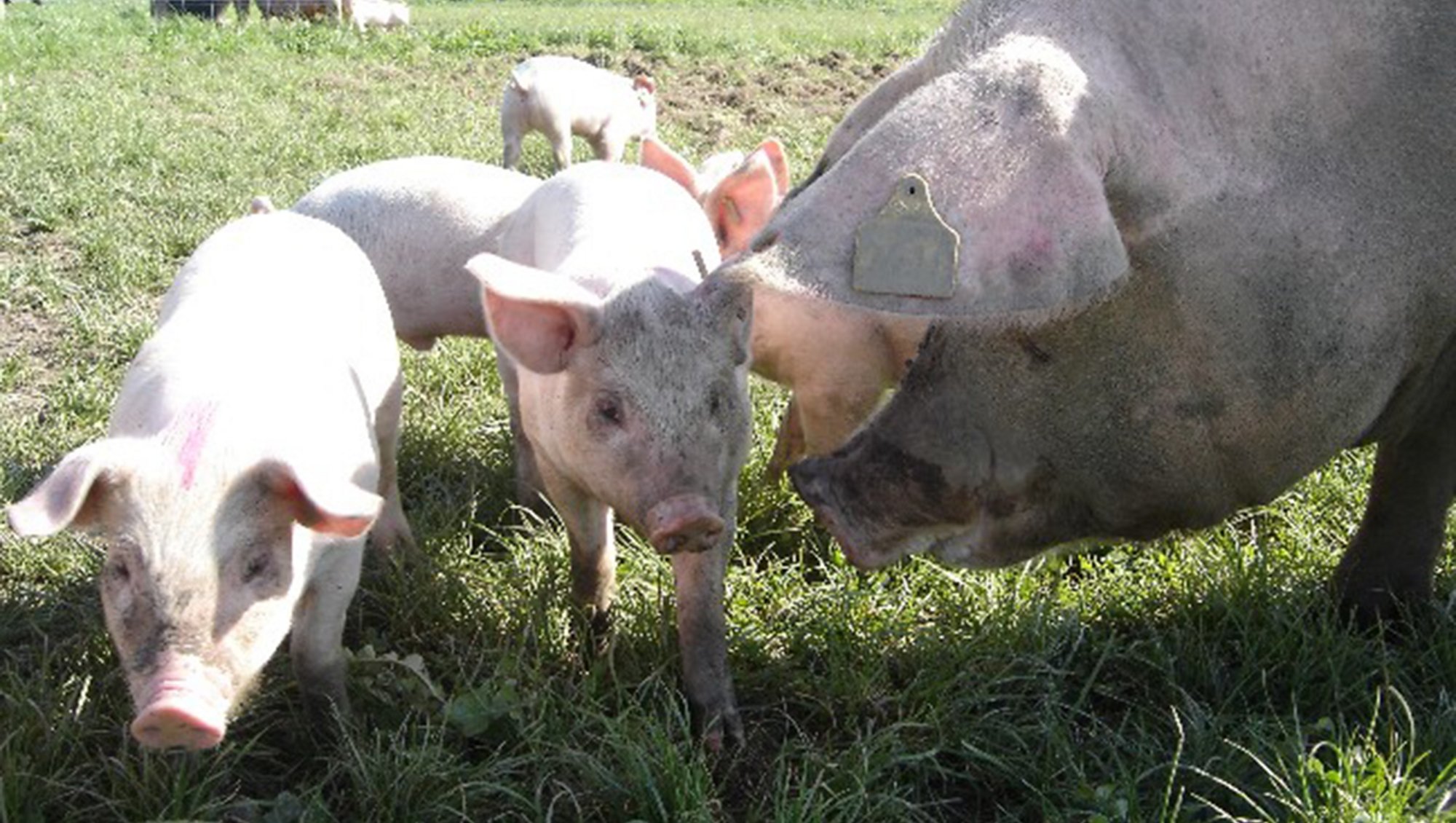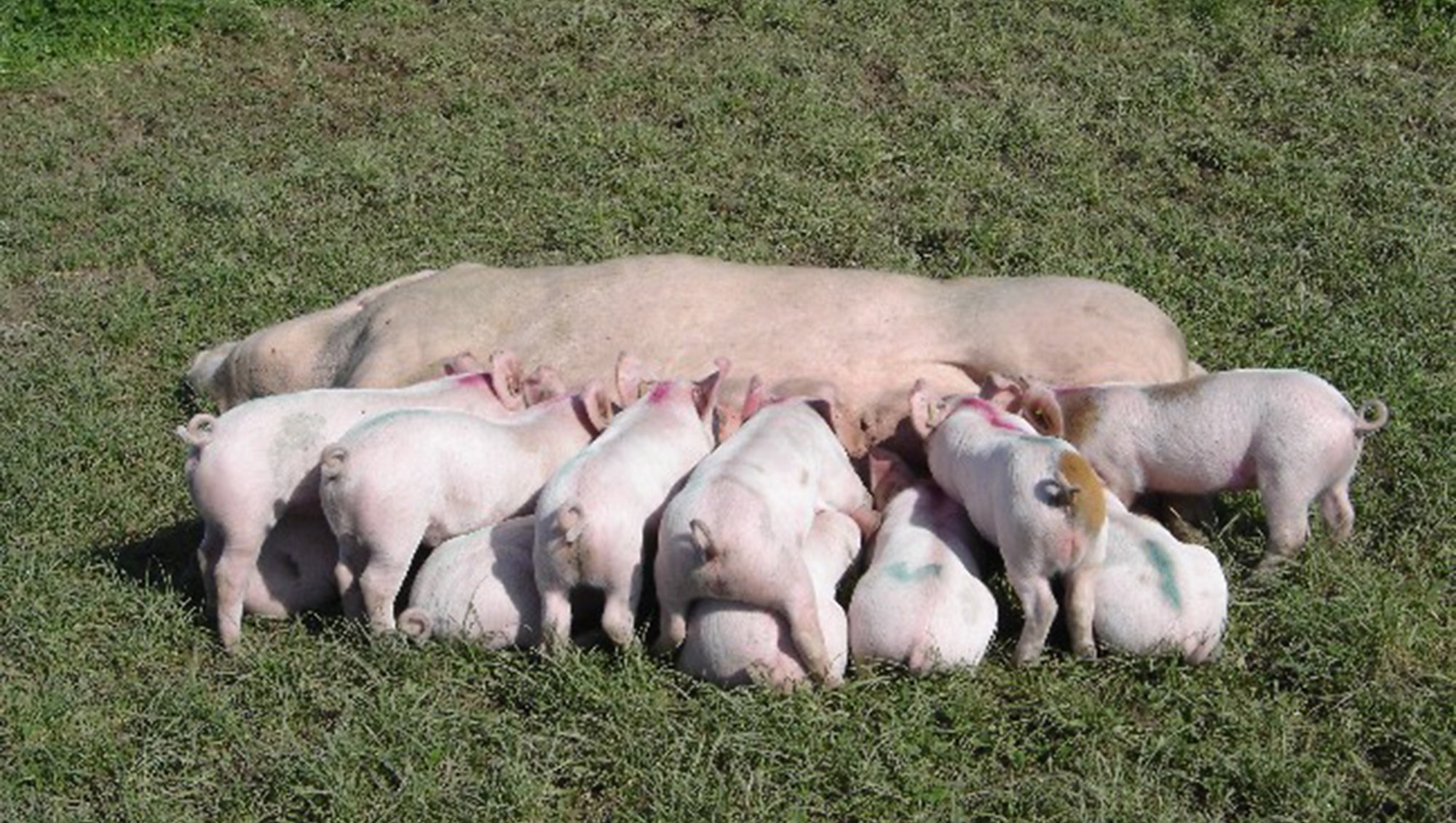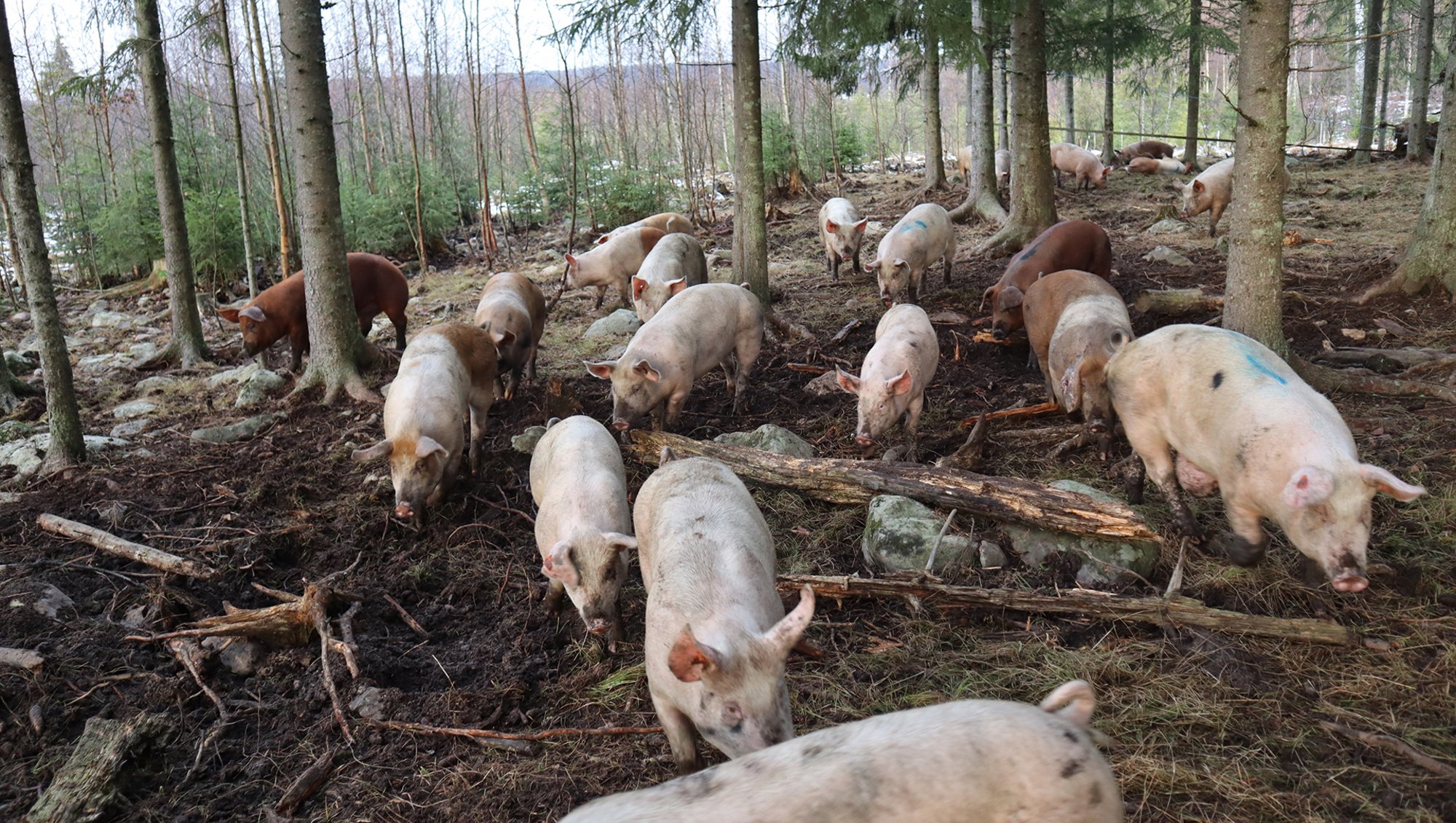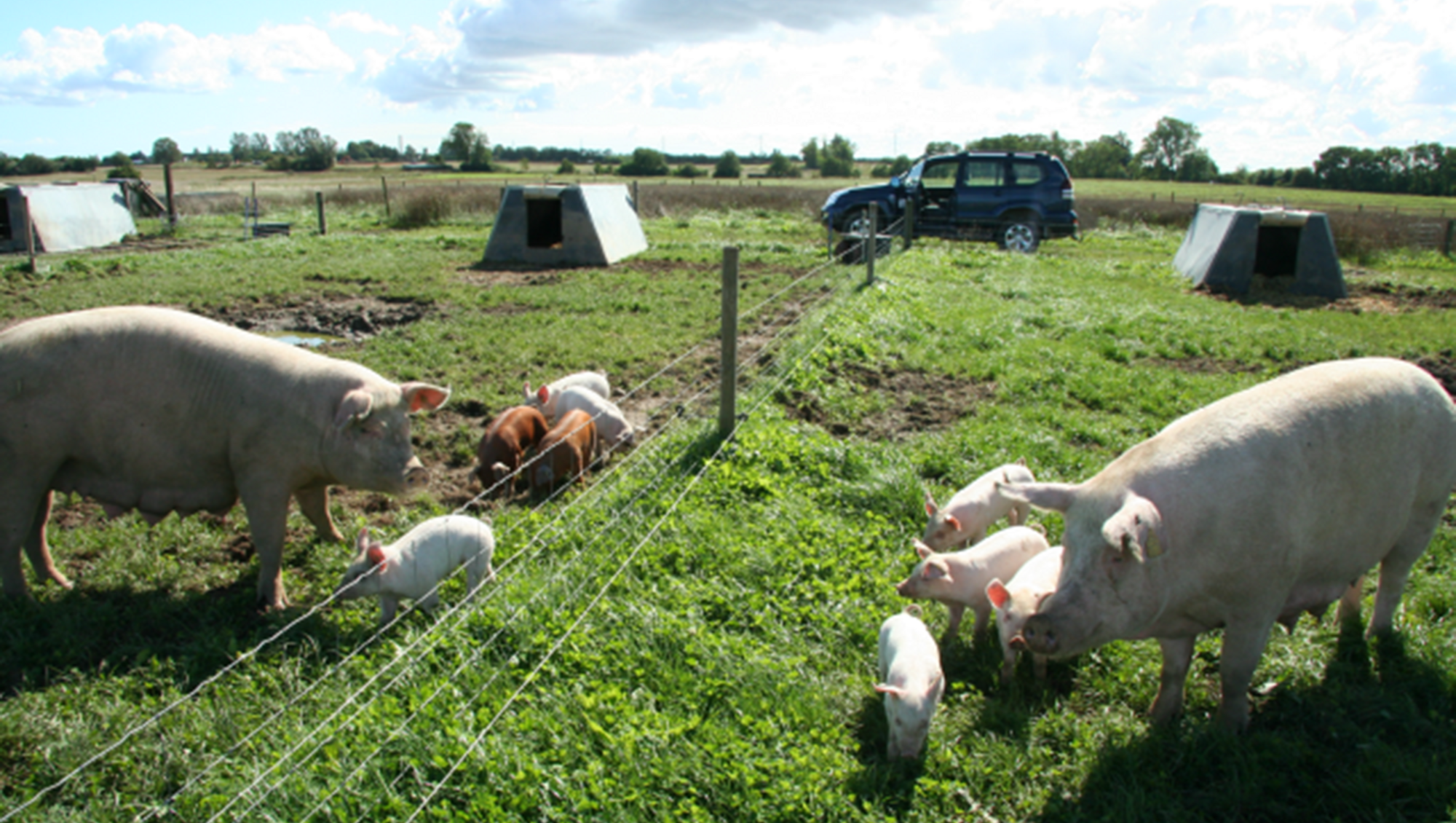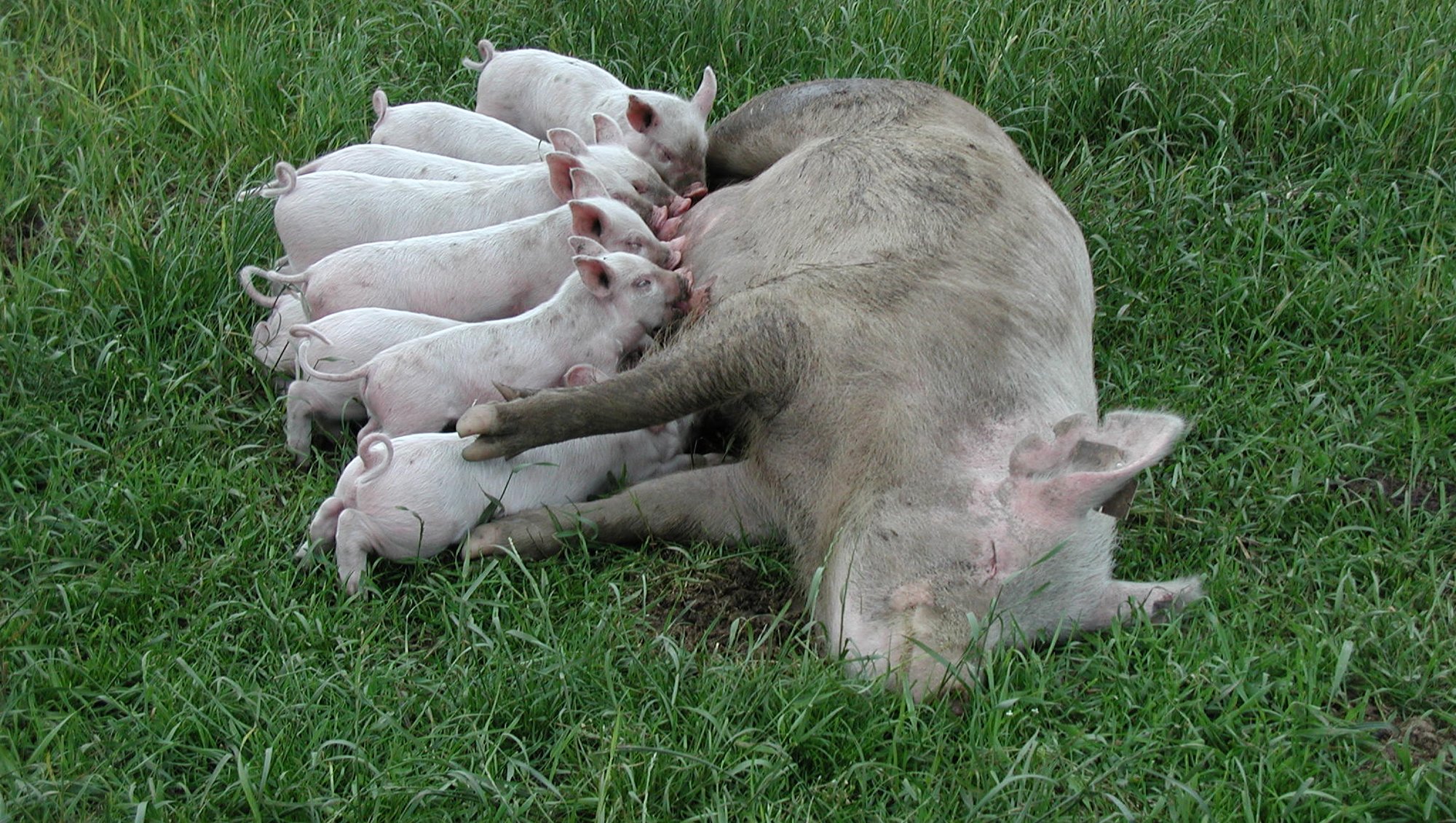ROAM-FREE
Robust animals in sustainable mixed free-range systems
To reach the European Green Deal ambition of “at least 25 % of the EU’s agricultural land under organic farming by 2030” it is essential to support consumer interest and trust in organic animal products. Free-range pig systems comply well with consumer expectations and support the organic principles of “natural living”. Free-range access reduces the need for antibiotics, lowers the capital for stable and may decrease the carbon footprint compared to indoor systems. Managing pigs free-range can be challenging and free-range access in pig-farming is declining or virtually non-existing. Biosecurity challenges, including infectious diseases and parasites and excessive land requirements are factors that the project will investigate.
Aim
ROAM-FREE believes that combining organic pig production with other livestock or better integration of pigs with (cash) crops or trees, in mixed free-range production systems, may be an attractive alternative to present day specialized pig production due to increased adaptability to climate change, changing markets and costs, and better welfare while fulfilling consumer expectations.
The project will investigate how mixed free-range production systems can improve animal robustness and welfare. As well as environmental and economic sustainability and biodiversity in organic pig farming. This will support a wider adoption of organic farming across Europe – from Norway through to Romania.
Expected output
ROAM-FREE will document how existing mixed free-range systems with pigs throughout Europe perform, and describe innovative and best-practice scenarios for improved use of such systems. We expect to be able to improve the animal welfare, sustainability, and biodiversity by:
- providing novel strategies for feeding, particularly the inclusion of trees
- better management of pastures or free-range, including use of traditional and local breeds
- guidelines for biosecurity and welfare, including welfare assessment protocols and prevention of selected parasites
- a direct involvement of recruited farmers will ensure a true impact on the organic sector
The project step by step
A number of existing organic pig farms with a mixed free-range production system will be enrolled by each partner and investigated as follows:
- regular assessments of health and welfare, in particular pasture-related problems, like biosecurity, parasites, and heat stress
- describe and analyze feeding strategies and productivity of pigs and other livestock
- assessing the biodiversity in such systems by trapping of insects
- investigate farmers’ own priorities and perceptions of problems with free-range management
- perform economic and environmental performance by life cycle assessment as well as degree of self-sufficiency
- examine the anti-parasitic potential of selected feed items and management strategies
Finally, we will develop strategies for improved use of free-range area based on above results and disseminate such strategies. A European workshop will take place at the end of project.
News from the project
Antimicrobial resistance in free-range pigs: the Slovenian-Romanian experience
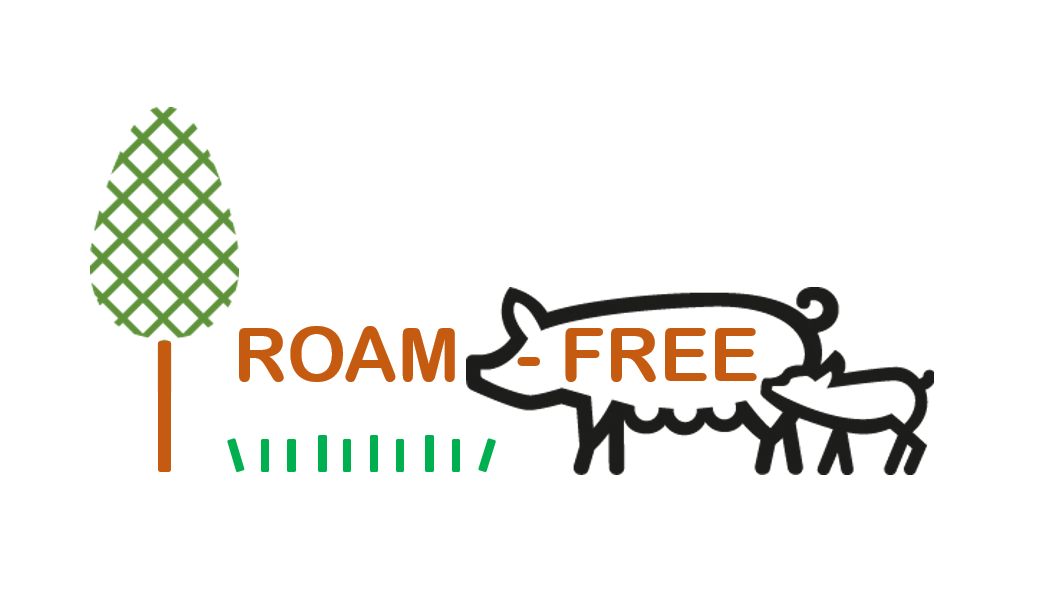
Coordinator & Partners
Coordinator
Professor Stig Milan Thamsborg, Dept. of Veterinary and Animal Sciences, University of Copenhagen (UCPH), Denmark, smt@sund.ku.dk
Partners
- Amalie C. Pedersen, Helena Mejer, Andrew Williams, University of Copenhagen (UCPH), Denmark
- Davide Bochicchio, Council for Agricultural Research and Economics (CREA), Research Centre for Animal Production and Aquaculture, Italy
- Anne Grete Kongsted, Aarhus University (AU), Denmark
- Berit Blomstrand, Kristin Sørheim, and Atle Wibe (country coordinator), Norwegian Centre for Organic Agriculture (NORSØK), Matthias Koesling (NIBIO), Richard Helliwel (RURALIS), Norway
- Marina Štukelj and Joze Starič, Veterinary Faculty, University of Ljubljana (ULVF), Slovenia
- Marina Spinu, Univ. Agri. Sciences and Vet. Med. (USAMV), Cluj-Napoca, Romania
Funding institutions
- Julia Gajo, Green development and demonstration program (GUDP), Denmark
- Serenella Puliga, Ministry of agricultural, food and forestry policies (MIPAAF), General direction of agri-food quality promotion – PQAI 1 Office for organic agriculture and food quality systems, Italy
- Nina E. Solheim, The Research Council of Norway (RCN), Norway
- Ms Jana Erjavec, Ministry of Agriculture, Forestry and Food / Ministrstvo za kmetijstvo, gozdarstvo in prehrano (MKGP), Slovenia
- Adrian Asanica, The Executive Agency for Financing Higher Education, Research, Development and Innovation (UEFISCDI), Romania
